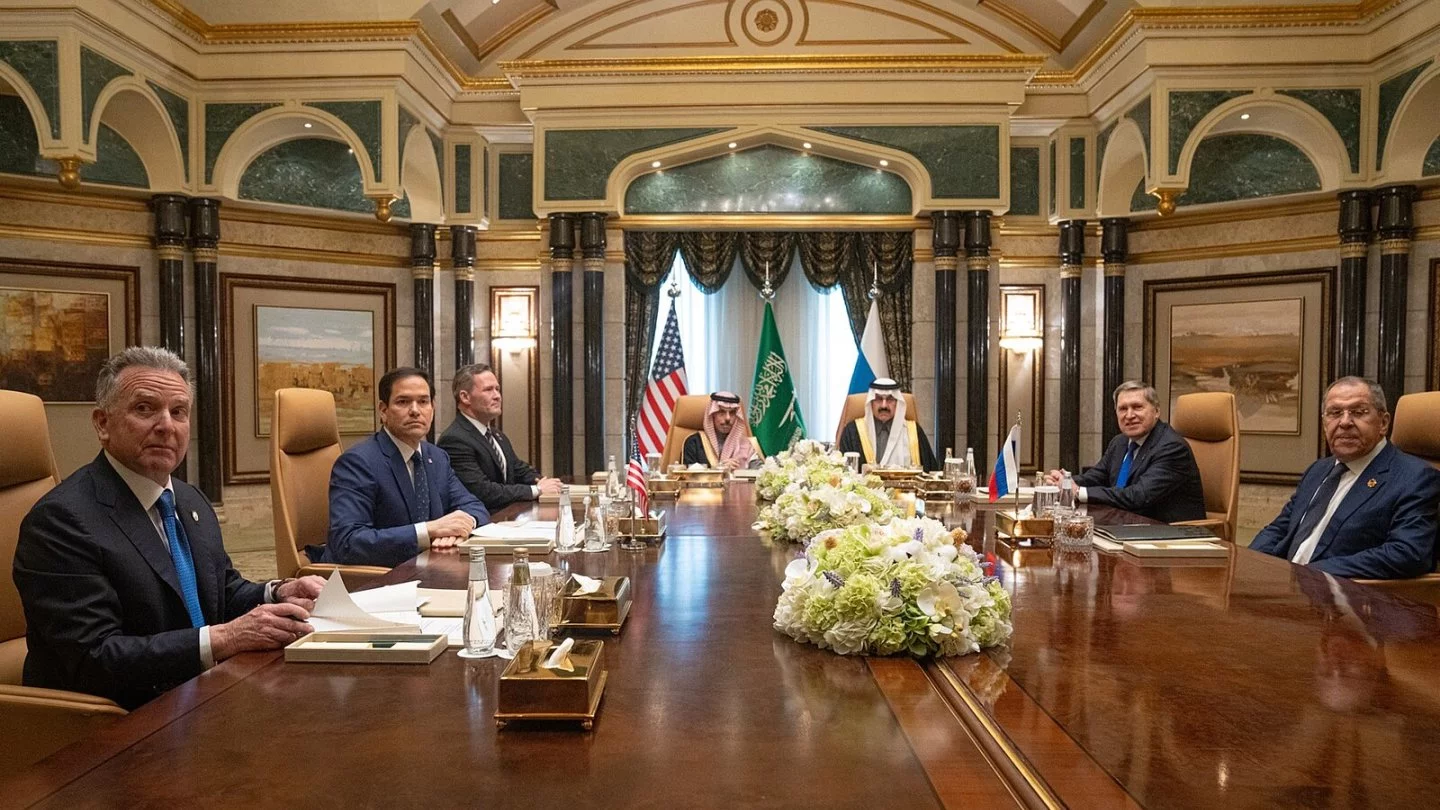Lavrov–Rubio Meeting Ahead of Trump–Putin Summit Postponed
 Photo: Ill. Purposes, Rubio left, Lavrov Right - Meeting of US and Russian officials (Official U.S. Department of State photo by Freddie Everett — Public Domain)
Photo: Ill. Purposes, Rubio left, Lavrov Right - Meeting of US and Russian officials (Official U.S. Department of State photo by Freddie Everett — Public Domain)
The planned meeting between Russian Foreign Minister Sergey Lavrov and U.S. Secretary of State Marco Rubio, intended to precede the upcoming Trump–Putin summit, has been postponed, CNN reports, citing a White House official.
Tabled For Now
According to the report, it remains unclear why the meeting was delayed, but one of CNN’s sources noted that Lavrov and Rubio had differing expectations about how the war between Russia and Ukraine could end.
A phone call between the two took place on October 20, during which, according to Russia’s Foreign Ministry, they discussed “specific steps for implementing the understandings reached by Putin and Trump.”
However, after that call, U.S. officials reportedly concluded that Moscow’s position had not shifted from its maximalist demands. One of CNN’s sources said Rubio is unlikely to recommend holding the Putin–Trump meeting next week, although the two diplomats may speak again later this week.
CNN notes that it is also unclear how the postponement of the Lavrov–Rubio meeting will ultimately affect the expected Trump–Putin summit in Budapest.
Sanctions Bill on Hold
The U.S. Senate has also paused consideration of the Sanctioning Russia Act of 2025 until after the anticipated meeting between Donald Trump and Vladimir Putin, Bloomberg reports.
Republican Party leader John Thune told reporters in the Senate that lawmakers were temporarily halting the process:
“At the moment, we’re kind of pressing the pause button,” Thune said.
The bill, introduced on April 1, had long remained stalled despite support from at least 85 senators. Last week, Thune said the chamber would vote on the measure within 30 days.
The Sanctioning Russia Act of 2025 mandates sweeping economic measures if the U.S. president determines that Russia — or entities acting on its behalf — refuses to negotiate peace with Ukraine, violates an existing agreement, launches a new offensive, or seeks to overthrow the Ukrainian government.
If enacted, the law would impose a minimum 500% tariff increase on all Russian goods and services, as well as on imports from any country trading in Russian oil or uranium.
Latest news
- Tokayev Meets U.S. Ambassador Stufft, Discusses Board of Peace Cooperation
- Mangystau Launches AI-Assisted School Monitoring to Prevent Teen Suicidal Behavior
- Kazakhstan to Supply UK With Critical Minerals
- AI Faculties for Educators to Open in Kazakhstan: What Other Changes Are Coming to the Education Sector
- There Are Medals — But Not Enough Ice: What’s Happening to Figure Skating in Kazakhstan
- Is Kazakhstan’s Nuclear Power Plant Project at Risk After New UK Sanctions? Rosatom Responds
- Prosecutor General’s Office Suspends Extradition of Navalny Ex-Staffer Detained in Almaty
- Former EBRD Executive Jürgen Rigterink Elected as New Independent Director on Bank RBK’s Board of Directors
- Kazakhstan Near Bottom of Retirement Comfort Ranking
- Kazakhstan to Open New International Flights Across Asia, the Middle East and Europe
- Foreign Experts Paid 47 Times More Than Local Scientists in Kazakhstan
- Almaty Utility Services Clear Streets for Fourth Time After Continuous Snowfall
- The Deputy Calls for Checks on Kazakh Officials Named in Epstein Files
- Su-30SM Fighter Jet Crashes Near Karaganda
- School Smartphone Restrictions May Expand Beyond the Classroom
- US warns Ukraine against strikes affecting CPC oil exports
- Kazakhstan and Austria Agree on Readmission of Illegal Migrants
- Digital Rating for Military Commanders Proposed in Kazakhstan
- Smartphones and Nap Time: Ministry Proposes Easing Rules for Convicts
- Company Managing Russia’s CPC Stake Hit by UK Sanctions

